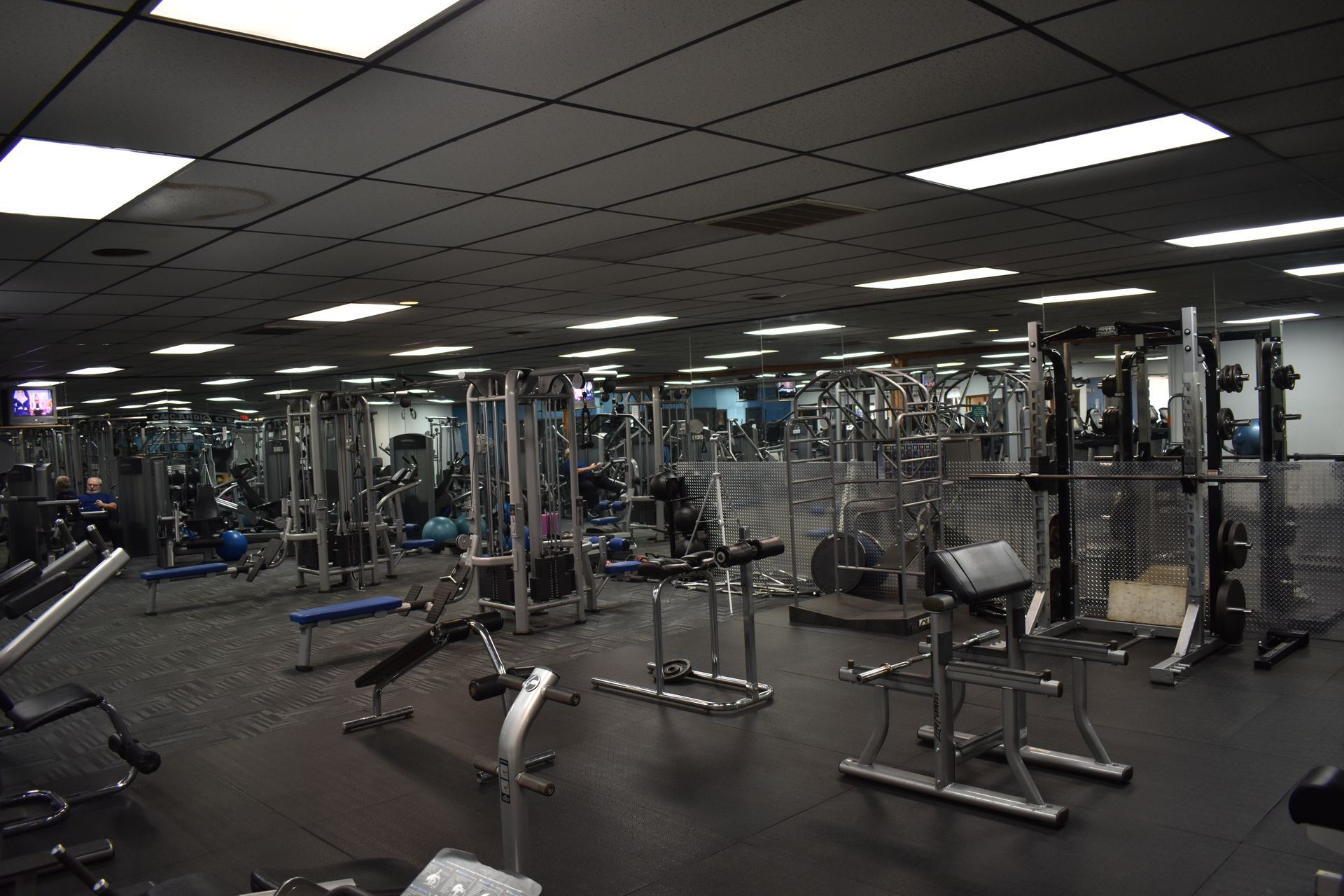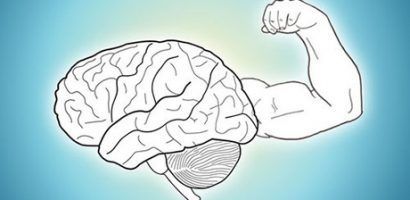Blog

Finding the motivation to workout can be tough enough on its own. It becomes even more of a hassle when you add another decision into the mix. However, choosing the right gym is crucial for your fitness journey. Now that you have made the commitment to working out, it’s time to find the perfect gym for you. But there are many factors involved when trying to find a gym that’s a good fit for you. So how exactly do you find the right gym? What things should you look for when choosing a gym? #1: Location This is probably one of the first things you should consider when looking for a potential gym. You are going to be a lot more likely to stick with your fitness routine if your gym is a convenient distance from you. If your gym is far away, chances are you are going to skip your workout on days you don’t feel like making the trek. So if you can, find a gym that’s closer to your location: you’ll thank me later. #2: Cost The next big thing you are should consider is the cost of a membership. Gym memberships can vary in cost depending on what type of plan you go on (length of term, type of usage – student or otherwise). If you can, decide on a set amount of money you are willing to spend on a gym membership before hand. Your best bet is to check out a few different gyms in your area and then compare prices. If you can wait until around late summer or New Year to sign up, you will find that often many gyms will have special promotions going on at this time. #3: Equipment Now on to the fun stuff! When you are looking for a gym, you want to make sure it has all the equipment you are going to need. Is your gym furnished with the latest fitness equipment? Do you have dozens of workout machines available so members don’t have to wait during peak hours? When choosing a gym, potential members are going to be wary of joining if your equipment is from a forgotten era or there’s not enough machines to use. Also, it’s crucial that equipment is well-maintained and repaired quickly if issues arise. #4: Amenities Amenities is another thing you can be on the lookout for when searching for a gym. While this isn’t necessarily a necessity, it can be what makes a gym more unique. Does your gym offer reliable wireless Internet access? Are there hot tubs or saunas in the locker room? When marketing a gym, boast the amenities you offer members. For instance, if you’ve installed a juice and/or smoothie bar in your gym, include that feature in your promotional material. While amenities shouldn’t be your main focus when choosing a gym, it’s definitely a factor. #5: Classes Another thing to consider is whether or not you would want to participate in any classes, like spinning. If you are interested, be on the lookout for gyms that offer a wide variety of classes. Often when your motivation is lacking to do yet another session on the treadmill, a cardio kickboxing class can be just the thing you need to get you into the gym that day for your workout. Again, this one is optional but it can definitely make your fitness journey more interesting. The Takeaway In short, there are a lot of factors that go into choosing the right gym. You should be on the lookout for things like cost, location, amenities, equipment, and classes. But in the end, just find a gym that has what you need for the right price.

Having a proper diet is crucial when it comes to health and fitness. Fueling your body with the right nutrients prior to exercise will give you the energy and strength you need to perform better. Good nutrition can help your body perform better and recover faster after each workout. Optimal nutrient intake prior to exercise will not only help you maximize your performance but also minimize muscle damage. So in short, eating properly should be one of your main fitness goals. But what exactly should you eat before and after a workout? Here are some pre and post workout meals to get you started. Before #1: Whole Wheat Toast with Sliced Banana and Cinnamon When it comes to gearing up for workout, carbs are your gym BFF. The key is to have a mixed bag of complex and simple ones so that the release of energy during your workout is slow and steady throughout your routine. Whole-wheat toast with fruit gives you both types of carbs with the bonus of being super easy to digest. Complex carbs will keep your motor humming, while the fruit adds an extra kick of energy. For those training for a race, bananas are perfect in raising potassium levels, which drop when you sweat a lot. For an added bonus, add a dash of cinnamon. The spice has been linked to stabilizing blood sugar and improving brain function. #2: Greek Yogurt and Trail Mix Getting ready for a long run? Eat some yogurt first. It’s easy on your stomach and when paired with trail mix can give you the little rev your body needs. Just make sure to choose a mix that is mostly nut and dried fruit based with as little fillers as possible. (Yes, sadly we’re talking about those little chocolates!) The healthy sugars from dried fruit provide that quick energy boost while seeds and nuts will keep insulin levels from dropping mid-workout. Just remember, a little bit goes a long way. Seeds and nuts are high in fat, which means they take longer to digest. Too many and you could start feeling sluggish and slow as you sweat. #3: Smoothies Need a snack on-the-go on your way to the gym? Stick with a smoothie. Not only are they time-friendly, building your own blend has a bunch of exercise benefits. For a foolproof formula, use your favorite sliced fruit, a cup of Greek yogurt and some granola for a thicker consistency. If you’re picking one up, check the label to make sure it’s made from whey or milk-based proteins. And no need to go overboard — 10 to 20 grams of protein before exercising is plenty. After Here are a few post workout meals that you might want to give a try. #1: Grilled Chicken and Mixed Vegetables This is a pretty basic meal, but it’s also very satisfying. Your body is in recovery mode, so you need a nutrient dense dish. The lean protein and carbohydrates in chicken will fill you up without feeling overly bloated. Add some veggies in olive oil to keep your ticker in tip top shape. #2: Veggie Omelet with Avocado You already know eggs are a great source of protein and help aid in muscle recovery and growth. Switch it up from the usual scramble and make a veggie-packed omelet. Garnish with a few slices of avocado for fiber and monosaturated fats (the good kind!). Similar to olive oil, avocados can help your body better absorb fat soluble nutrients that your veggies have like vitamins A, D, E and K. These vitamins are stocked with antioxidants, the best boost for your body, inside and out. #3: Salmon with Sweet Potato Aside from the usual protein perks, salmon has bioactive peptides, small protein molecules that play a role in inflammation reduction, helping to regulate insulin levels and give you joint support. Sweet potatoes pack in those complex carbs as well as help to restore glycogen levels, which get depleted after a workout. The Takeaway In short, a healthy diet can make a world of a difference when it comes to fitness. These were just a few pre and post workout meals that you might want to try.

Regardless of age or fitness level (yup, this includes everyone from mall-walkers to marathoners), studies show that making time for exercise provides some serious mental benefits. Going to the gym every day is one way to accomplish this goal. Regular exercise carries many physical and mental health benefits. Do not begin any new exercise program without talking to your doctor first, especially if you have any health conditions or have been sedentary to this point. So let’s dive right into all the benefits of exercise and working out at the gym. #1: Reduce Stress It’s a proven fact that exercise improves your mental health, plain and simple. Take a walk or head to the gym for a quick workout. One of the most common mental benefits of exercise is stress relief. Working up a sweat can help manage physical and mental stress. Exercise also increases concentrations of norepinephrine, a chemical that can moderate the brain’s response to stress. So if you have head a rough day at the office, or are going through a stressful situation, head to the gym. It will definitely be worth it in the long run. #2: Heart Health Considering how many lives heart disease claims each year, caring for your heart should be a top priority. Regular gym workouts reduce the LDL (low-density lipoprotein) cholesterol that clogs the arteries. They also increase the levels of HDL (high-density lipoprotein), a good type of cholesterol, as a result preventing cardiovascular diseases and strokes. Exercise improves blood circulation, lowers blood pressure, and optimizes the heart’s functioning capacity, which in turn reduces the development of blood clots. Gym workouts also help prevent and control non insulin-dependent diabetes as increased fitness leads to better weight management. So if you want to improve your heart health, hit the gym. #3: Prevents Osteoporosis and Improves Strength Gym workouts that include weight lifting, squats, aerobics, and running prevent bone loss and help in the building and strengthening of bones. Low bone mass causes osteoporosis, which makes the bones brittle and prone to fractures. Working out accelerates the growth of new bone structures. It also increases the supply of oxygen and blood to the bones and the surrounding tissues. This helps in the repair and preservation of tissues. Workouts that strengthen the body muscles and boost the body’s metabolism help you undertake daily tasks with renewed energy. This is because exercise boosts the nutrient and oxygen supply to the tissues and its utilization by the body. Regular gym workouts also improve joint mobility and flexibility. This helps prevent and control arthritis, an ailment that causes stiffness and pain in the joints. #4: Weight Management Gym workouts are the easiest way to work off the extra calories that lead to unhealthy fat accumulation in the body. Any form of workout burns the calories consumed, leading to more energy, healthy body mass, and a fitter and leaner appearance. Exercise helps reduce body fat by converting it into muscle mass and also helps prevent many health problems commonly linked to obesity, such as high blood pressure and diabetes. The Takeaway In short, working out at the gym has tons of benefits. It can improve your heart health, reduce stress, improves stress, and helps keep your weight in check. So get out there and get active, you won’t regret it.

The mental health benefits of exercise have largely been overlooked by society in favor of the pursuit of physical excellence. But people don’t just come to the gym to look good, they come to feel good too. Mental health problems will affect 25% of people this year and that’s a statistic we simply should not ignore. Unlike obesity, depression can be very hard to identify. If you’re looking to improve your overall health you are likely very open about struggling with weight management but, due to the societal stigma that surrounds mental health issues, you are unlikely to come out and say that they you have a mental health goal. It’s also very difficult to differentiate between being temporarily down, or naturally reserved, and the more intractable sadness of clinical depression. Here are a few of the ways that personal trainers can help those suffering from mental health issues: Keep depression at bay. Exercise has been proven to be at least as effective as medication in treating mild depression for most people who take on a structured exercise plan. Those who exercise frequently are also less likely to become depressed than those who are inactive. There are various theories that explain the link between depression and exercise, the most well-known of which being the endorphin theory. Aside from more complex mechanisms, however, the simple facts that exercising is distracting (in a positive way), gets you out of the house and makes you feel better about your body also go some way to explaining why exercise is effective at beating depression. Exercise is helpful for the majority of people who experience mild depression but it is not a silver bullet when it comes to moderate or severe depression. In more extreme cases, your client should seek medical help in conjunction with maintaining a healthy exercise routine. “Exercise is helpful for the majority of people who experience mild depression” Improve sex life. Sexual disorders and disinterest can be damaging for those who experience them and their relationships. Sexual health is strongly related to physical and mental health with those who are inactive or depressed being much more likely to experience some form of sexual dysfunction than active people. Vigorous exercise improves blood flow throughout the body and can reduce the likelihood of impotence in men. Exercise can also improve sexual response in women. Perhaps more than the physical benefits though, exercise has also been proven to enhance self-esteem, a key element to a healthy sex life. Catch more ZZZs. Those suffering from one or more mental health complications are likely to experience sleep deprivation and this can also be a trigger for mental health problems. Fortunately, those who exercise are more likely to sleep for longer and wake up less frequently in the night than those that are sedentary. A caveat here, is that some studies suggest that it can take up to sixteen weeks for an exercise routine to affect your sleep pattern, so it’s certainly something that you need to work toward and not give up on too easily. Reduce the likelihood of anxiety attacks. Aerobic exercise, especially when it is high-intensity, has been proven to reduce both anxiety sensitivity and more generalised anxiety. There are several possible explanations as to why this might be the case but one of the more convincing is that the effects of exercise – an elevated heart rate and sweating – allow the body to become accustomed to the symptoms of an anxiety attack in a safe environment. Furthermore, exercise can boost mood, another antidote to anxiety. “In layman’s terms … exercise provides more relaxation per minute than you’ll get from a soak in the tub” Say goodbye to stress. Researchers are narrowing in on the link between exercise and stress and have calculated that one twenty minute exercise session can generate ninety to one hundred and twenty minutes of relaxation response from your body. In layman’s terms, that’s more relaxation per minute than you’ll get from a soak in the tub. This is one of the reasons that people who are able to exercise during the workday, such as personal trainers, report much lower stress levels than those who work in an office environment. Feel better, in body and mind. We’ve all heard of the ‘runner’s high,’ and there’s a good chance that the majority of personal trainers have experienced it first-hand. The good news is that it’s not just runners who get to feel euphoric – it can be everyone who exercises. It’s very difficult to pinpoint exactly which chemical is responsible. Some say endorphins, others point to a variety of neurotransmitters including norepinephrine, dopamine and serotonin, all of which can be traced to a ‘feel-good factor’ and all of which are elevated during exercise. Whatever the exact reason, the results are clear: people who exercise regularly report higher rates of well-being and lower incidences of depression and anxiety. One of the more interesting recent studies evaluating the effectiveness of exercise at beating depression compared exercise-as-a-treatment versus a standard medication plan. While medication did work more quickly to alleviate the symptoms of depression, at the sixteen week mark it was found that the two methods were just as effective as one another. More interestingly however was the fact that at the ten month follow up, those who had continued to exercise were much less likely to have fallen back into depression than those who had continued to take medication. As personal trainers move away from a single-minded focus on outward appearance and adopt a more holistic approach that addresses the overall health and wellbeing of their clients, we can expect to learn more about the mental health benefits that exercise can provide. In a country where just over half admit that anxiety has held them back at some point in their lives, exercise, as a natural health booster can have a massive role to play.
